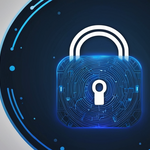
Proton VPN’s free tier represents a notable exception in the landscape of free virtual private network services, distinguishing itself through a combination of technical security features, transparent privacy policies, and a business model explicitly designed to protect rather than exploit user data. This comprehensive analysis examines whether Proton Free VPN genuinely delivers on its safety promises by evaluating its encryption standards, no-logs policy verification, jurisdictional advantages, practical limitations, and real-world performance across multiple dimensions of cybersecurity and privacy protection. Based on extensive independent audits, transparent legal disclosures, and comparative analysis with competing services, Proton Free VPN emerges as a genuinely safe option for users prioritizing privacy, though with important contextual limitations that users should understand before adoption.
Security Architecture and Encryption Standards
Advanced Encryption Implementation
Proton VPN implements bank-grade encryption standards that form the technical foundation of its safety claims. The service utilizes AES-256 encryption with a 2048-bit RSA handshake and HMAC SHA 256 authentication across both free and paid tiers. This encryption standard represents what military and financial institutions use to protect highly sensitive information, and according to cryptographic analysis, it would require billions of years of brute-force computation with current technology to break. The use of AES-256 as an NIST-approved cipher ensures that the actual data being transmitted remains completely unreadable to any third party attempting to intercept the connection.
Beyond the primary encryption cipher, Proton VPN employs perfect forward secrecy, which generates unique encryption keys for each individual session. This architectural choice means that even if one encryption key were somehow compromised in the future, all previous sessions would remain secure because each session used a different key. The service also automatically rotates encryption keys both between sessions and within sessions, adding additional layers of protection that go beyond what many competing VPN services provide. These technical measures apply equally to both free and paid users, demonstrating that Proton has not compromised security standards for its free tier.
For practical protection, see our IP protection feature feature.
VPN Protocol Options and Performance
Proton VPN offers multiple VPN protocols with proven security track records, including OpenVPN, IKEv2, and WireGuard, with each protocol representing industry-standard secure options. The service’s proprietary Stealth protocol, based on WireGuard and designed to bypass censorship detection, provides an additional option for users in highly restricted environments. Users can select from these protocols manually or use the Smart Protocol feature, which automatically detects the best protocol configuration for their specific network conditions. Testing conducted by security researchers confirms that WireGuard typically delivers speeds approximately 10 to 15 percent faster than OpenVPN while maintaining equivalent security standards.
The choice of protocols matters significantly for practical safety. OpenVPN is a highly secure protocol that uses 256-bit AES encryption with RSA-4096 key exchange, making it suitable for situations requiring maximum security at the cost of some speed reduction. WireGuard, by contrast, uses ChaCha20 encryption and modern elliptic curve cryptography, offering comparable security with superior performance characteristics. IKEv2 provides enterprise-grade security with excellent reliability on mobile networks where connections frequently transition between Wi-Fi and cellular data. By offering this protocol diversity even on the free plan, Proton demonstrates technical sophistication and genuine commitment to user choice.
DNS and Data Leak Prevention
Critical to the safety assessment of any VPN service is whether it actually prevents DNS leaks, which could expose your browsing history to your internet service provider or other observers. Proton VPN runs its own dedicated DNS servers rather than relying on third-party DNS services. When you use Proton VPN, all DNS queries that ordinarily would reveal which websites you visit get routed through Proton’s encrypted VPN tunnel and resolved on Proton’s own servers. This approach contrasts sharply with many competitors that allow DNS queries to leak outside the VPN tunnel, potentially compromising user privacy even while other traffic remains encrypted.
Independent testing of Proton VPN’s leak protection using industry-standard DNS leak testing tools confirms zero DNS leaks across all tested scenarios. The service also implements IPv6 leak prevention and WebRTC leak protection, addressing multiple technical vectors through which user identities could be exposed. Researchers testing the service across diverse network configurations found no instances of DNS leaks, IPv6 leaks, or WebRTC leaks. These results matter because a VPN is only as effective as its weakest technical link, and a single successful leak could completely undermine the encryption protections by revealing your real IP address or browsing patterns.
Privacy Policy and No-Logs Verification
Strict No-Logs Policy Definition
Proton VPN enforces a strict no-logs policy that comprehensively documents exactly what data is not collected from users. The service explicitly states that it does not log which websites users visit, does not log traffic or communication content, does not log user IP addresses, does not log session lengths, and does not log or track location-based information. This comprehensive approach to non-logging goes beyond what many competitors claim, as it explicitly specifies multiple categories of data that are not collected rather than making vague general statements. The policy applies equally to both free and paid users, meaning the free tier receives identical privacy protections as premium subscribers.
The no-logs policy has been verified by independent external auditors multiple times across consecutive years. In 2025, security experts from Securitum, a leading European security auditing company that conducts over 300 security testing projects annually for major corporations and banks, conducted a comprehensive audit of Proton VPN’s infrastructure. The resulting audit report confirmed that “the technical evidence reviewed showed no instances of user activity logging, connection metadata storage, or network traffic inspection that would contradict the No-Logs policy.” The audit further verified that Proton VPN has implemented “robust administrative and technical controls, including automated configuration management and a formal dual-control change process, which are designed to ensure the continuous integrity of the no-logging environment.”
This represents the fourth consecutive year of independent third-party audits confirming the no-logs policy, a track record that is rare among VPN services. Most VPN services either do not undergo such audits or conduct them infrequently, making Proton’s commitment to ongoing verification particularly noteworthy. The fact that these audits have been published publicly and are available for scrutiny means that independent security researchers can verify Proton’s claims rather than relying on company assertions alone.
Transparency Reports and Legal Requests
Proton VPN publishes a transparency report detailing all legal requests it has received and whether it complied with each request. Examining this transparency report provides insight into whether the no-logs policy is actually tested in practice when governments attempt to obtain user data. According to Proton’s most recent transparency report updated in June 2025, the service received 29 legal requests during the first half of 2025, and it denied all 29 requests. This pattern has remained consistent across multiple years, with Proton denying 29 of 29 requests in 2025 (through June), 53 of 53 requests in 2024, and 60 of 60 requests in 2023.
The consistency of these denials directly results from the no-logs policy working as designed. All requests have come from authorities attempting to identify which user was connected to a specific VPN server at a specific time based on server IP addresses and timestamps. Because Proton does not maintain connection logs or user activity logs, even when Swiss courts issue legally binding orders, Proton cannot comply with these requests because the requested data does not exist. This creates a compelling real-world validation of the no-logs policy—authorities have tried to compel the data, but Proton cannot provide what it does not collect.
Additionally, Switzerland’s unique legal framework provides structural protection that reinforces Proton’s no-logs policy. Under Swiss law, specifically Article 271 of the Swiss Criminal Code, Swiss companies are forbidden from assisting foreign law enforcement unless the request complies with Swiss law and is approved by Swiss authorities. This means that even foreign governments cannot use diplomatic channels to force data collection on Swiss companies. Furthermore, Switzerland does not have forced logging obligations like some other countries, meaning the Swiss government cannot legally compel Proton VPN to start maintaining logs even if it theoretically wanted to.
Trustworthiness and Company Structure
Founding and Leadership Credentials
Proton VPN was founded in 2014 by a team of scientists who met at CERN (the European Organization for Nuclear Research), an institution famous as the birthplace of the World Wide Web and known for rigorous technical standards. This founding origin matters significantly for trustworthiness assessment because it establishes that the company was built by individuals with legitimate cryptographic and security expertise rather than by entrepreneurs primarily motivated by capturing market share. The scientific background of Proton’s leadership team is a matter of public record, including academic careers and published scientific research that can be independently verified.
The company raised its initial funding through crowdfunding in the summer of 2014, with over 10,000 individuals donating more than $500,000 to support the project. This approach to financing is significant because it meant Proton never became beholden to venture capital investors with fiduciary duties to maximize profits. Unlike many technology companies that must prioritize investor returns, Proton’s funding model allowed it to remain independent and maintain its original mission. This independence persists today, as Proton continues to have no venture capital investors.
Non-Profit Foundation Structure
In a move to further embed its privacy mission into permanent legal structures, Proton transitioned to a hybrid model where the Proton Foundation, a Swiss nonprofit, became the primary shareholder of Proton AG. This structural arrangement means that Proton is legally obligated to act in accordance with the foundation’s purpose—advancing online privacy and freedom—rather than being subject to shareholder pressure to maximize profits. Swiss foundations, unlike corporations, do not have shareholders who can demand ever-increasing returns, meaning the company cannot be forced to compromise its mission through hostile takeover or investor pressure.
The foundation is further committed to reinvesting in the broader privacy and digital rights ecosystem. Proton pledges 1% of net revenues to the foundation, which then supports organizations aligned with the mission of defending online and offline freedom. Organizations that have received Proton Foundation support include the Tor Project, the European Digital Rights network, GrapheneOS, and numerous other privacy-focused initiatives. This commitment to funding the broader privacy ecosystem demonstrates that Proton’s leadership views privacy as a public good rather than merely as a business advantage.
Swiss Jurisdiction and Legal Protections
Switzerland’s location and legal framework provide concrete advantages for privacy protection that extend beyond just Proton VPN’s no-logs policy. Switzerland is not part of the 5 Eyes, 9 Eyes, or 14 Eyes intelligence-sharing agreements and is outside both U.S. and EU jurisdictions in terms of mandatory data retention laws. Switzerland has been legally neutral for centuries, and this neutrality extends to its role in international intelligence-sharing arrangements. Unlike companies based in the United States, United Kingdom, or European Union, Swiss companies are not subject to the legal frameworks that allow these governments to compel mass surveillance.
Protect Your Digital Life with Activate Security
Get 14 powerful security tools in one comprehensive suite. VPN, antivirus, password manager, dark web monitoring, and more.
Get Protected NowFurthermore, the Swiss Federal Constitution explicitly establishes a constitutional right to privacy in ways that most countries do not. Article 13 of the Swiss Constitution safeguards privacy in personal or family life and within the home, and this right has been translated into statutory law through Articles 28 of the Swiss Civil Code. This constitutional protection means that privacy is not merely a policy preference but a fundamental legal right in Switzerland. When combined with Switzerland’s strong rule of law and well-developed judicial system, this creates a jurisdiction where privacy can actually be enforced through courts rather than merely existing on paper.
Notably, Switzerland also preserves end-to-end encryption in ways that the U.S., UK, and EU have not. Unlike these jurisdictions which have considered or implemented legislation limiting the right to encryption, Switzerland has made no legislative moves to undermine encryption rights. This legal environment makes Switzerland an optimal jurisdiction for a company committed to providing encrypted privacy services, as the legal and technical architecture are aligned.

Free Tier Limitations and Practical Considerations
Server Access and Location Restrictions
The free tier of Proton VPN includes access to servers in five countries, with users automatically connected to the fastest available server rather than being able to manually select a specific country. These five countries are the United States, Japan, the Netherlands, Romania, and Poland. This limited selection represents one of the most significant practical trade-offs between the free and paid tiers, as the paid plan offers access to more than 15,000 servers in over 120 countries. However, for users primarily concerned with basic privacy protection from their ISP and protection on public Wi-Fi networks, the five countries available on the free tier generally prove sufficient.
The inability to choose specific servers on the free tier represents both an advantage and disadvantage for privacy. On the positive side, more users concentrated on fewer servers means individual user traffic is more “hidden among the crowd” due to IP address sharing. Multiple users connecting from the same VPN server appear to the outside world as a single IP address, making it harder to correlate traffic patterns to individual users. However, on the negative side, users cannot select specific geographic locations, which could matter if they need to access services geographically restricted to particular countries. Paid users can select from the full global server network and generally experience better speeds due to lower per-server congestion.
Speed and Performance Characteristics
Proton VPN’s free servers operate at 1 Gbps bandwidth, while paid servers offer up to 10 Gbps. This significant difference in available bandwidth means that free users experience more congestion, particularly during peak usage times. The service acknowledges that speeds are likely to be slower on free servers compared to paid servers, specifically because paid servers have fewer users while maintaining higher total bandwidth. Users who exceed approximately 1 GB of data usage sometimes notice further speed reductions, though the service technically offers unlimited data without hard caps.
In practical terms, independent testing found that Proton VPN’s overall speed reduction compared to unencrypted baseline speeds ranges from approximately 75 to 93 percent retention depending on geographic location and other factors. This translates to relatively minimal performance impact for typical browsing, email, and messaging activities, though it may be noticeable for bandwidth-intensive activities like video streaming or large file transfers. The free tier’s speeds are generally adequate for privacy-conscious users who prioritize security over maximum performance, though users intending to stream video or download large files frequently may find the paid tier more suitable.
Device Connection Limits
The free tier of Proton VPN allows connection to only one device at a time, while paid tiers permit up to 10 simultaneous connections. This single-device limitation is more restrictive than competing free VPN services like Windscribe or PrivadoVPN, though it aligns with Proton’s philosophy of maintaining security quality over offering generous feature breadth. For household users or individuals managing multiple devices, this limitation means choosing to protect either a desktop computer or a smartphone, but not both simultaneously.
However, the single-device restriction does not significantly impact the privacy protections offered to that single device. When connected, the free tier provides identical encryption, no-logs protection, and security features as the paid tier. The limitation is operational rather than technical, and many individual users successfully employ the free tier on a single primary device.
Advanced Features Reserved for Paid Plans
Several advanced privacy and security features remain exclusive to paid Proton VPN tiers. The Secure Core multi-hop architecture, which routes traffic through privacy-friendly countries before exiting to the final destination, is available only to paid users. This feature provides additional protection against advanced network-based attacks and is specifically designed for users with more sophisticated threat models. Additionally, NetShield ad and malware blocking, P2P file-sharing and torrenting support, and streaming service access are restricted to paid tiers.
Streaming capability represents a particularly notable limitation, as the free tier explicitly does not support access to geographically restricted streaming services like Netflix. The paid tier can unlock numerous Netflix regional libraries and other streaming platforms, whereas the free tier will not bypass these restrictions. For users whose primary concern is protecting privacy from their ISP and securing connections on public Wi-Fi, these advanced features may be unnecessary, but they represent meaningful limitations for users with specific use cases.
Performance, Reliability, and Real-World Usage
Connection Stability and Disconnect Issues
User reviews of Proton VPN reveal a mixed picture regarding connection stability, with some users reporting completely reliable connections while others report occasional disconnection issues. Some user reports indicate that Proton VPN experiences “micro-disconnects” and occasional stability problems, particularly when combined with intensive activities like torrenting while browsing. However, other users report excellent connection stability, attributing reliability to well-designed apps and stable server infrastructure.
The root cause of occasional disconnections appears to be architectural rather than specific to Proton VPN, as it affects most traditional VPN services. VPN services that use a single connection channel are inherently vulnerable to connection disruption whenever network conditions change, whether from switching between Wi-Fi and cellular networks or experiencing temporary signal fluctuations. This limitation applies to the free tier identically to paid tiers, as it stems from fundamental VPN architecture rather than service tier limitations.
Users experiencing frequent disconnections may improve stability by connecting to geographically nearby servers when possible, using alternative VPN protocols, or enabling the always-on VPN feature which automatically reconnects if the connection drops. The free tier includes a kill switch feature that prevents data exposure during disconnections, though some users report issues with kill switch functionality. Overall, while connection reliability is not perfect, it appears adequate for typical privacy-use scenarios rather than representing a critical flaw.
Customer Support Responsiveness
Proton VPN offers ticket-based customer support rather than live 24/7 chat support, which represents a limitation compared to some competitors. However, independent testing found that support response times average around 24 hours, which is reasonably responsive despite the lack of real-time chat options. Support staff provide substantive, direct answers to questions rather than simply directing users to knowledge base articles. The free tier receives identical support responsiveness as paid tiers, with no apparent degradation in service quality.
Threat Model: What Proton VPN Actually Protects Against
Effective Threat Protection Scenarios
Proton VPN was explicitly designed to be effective in specific security scenarios, as documented in transparent detail on Proton’s official threat model documentation. The service successfully protects users when securing insecure internet connections, such as browsing on public Wi-Fi networks without additional security. The AES-256 encrypted tunnel prevents anyone monitoring the public network—whether the café’s owner, other customers, or network attackers—from viewing any user activity.
The service also effectively protects users from hiding browsing history from ISPs. ISPs can only see that a user has connected to a Proton VPN server; they cannot see which websites are visited or what communications are transmitted. This protection extends to preventing ISP throttling of specific content types, as all encrypted VPN traffic appears uniform to the ISP. For users concerned about ISP surveillance or selective throttling of certain protocols (such as BitTorrent or video streaming), this protection represents a meaningful privacy gain.
Proton VPN also provides protection against internet censorship when ISPs or governments block access to specific websites. By routing traffic through Proton’s servers, users can access websites that might be blocked within their country, including news sources, social media platforms, and other content the local government wishes to restrict. This functionality has particular relevance for journalists, activists, and citizens in countries with restrictive internet policies.
Limitations: What Proton VPN Cannot Protect Against
Crucially, Proton VPN was designed with explicit transparency about its limitations, avoiding marketing claims of complete anonymity that cannot be technically delivered. Full anonymity is technically impossible with VPN services because the VPN provider always knows the user’s true IP address when the user connects. Even though Proton implements a no-logs policy under Swiss law preventing forced logging, this protection is legal rather than technical. The company explicitly states this to ensure users do not develop a false sense of invulnerability.
The service cannot protect against bandwidth throttling of the user’s entire internet connection, as VPN traffic still travels through the connection provided by the user’s ISP. If an ISP intentionally reduces overall bandwidth to all users or to a specific user’s account, a VPN cannot overcome this limitation. Similarly, sophisticated censorship employing Deep Packet Inspection technology can identify and potentially throttle or block VPN traffic even without decrypting it. While Proton’s Stealth protocol can bypass many DPI systems, determined censors using nation-state level technology can ultimately block VPN connections by identifying and blocking the IP addresses of known VPN servers.
The service also cannot protect against compromised devices or malware infections. If a user’s device is compromised before the VPN connection is established, malware could capture unencrypted data before the VPN encrypts it. Users must maintain independent security practices including antivirus software and caution about malware sources. This represents a general security principle rather than a specific failing of Proton VPN.

Comparison to the Broader Free VPN Landscape
Proton as an Exception Among Free VPNs
The free VPN market has historically been characterized by serious privacy violations and data selling practices. Research has documented that numerous free VPN services including Hola (caught in 2015), Betternet (2016), and Hotspot Shield (2017) were actively selling user data to third parties despite claiming to protect privacy. Industry analysis reveals that approximately 7% of VPN services regularly log connection data and more than 30% maintain suspicious, non-transparent logging policies. This context makes understanding why Proton VPN represents a genuine exception particularly important.
Proton VPN is the only major free VPN service that maintains:
No data or speed limits for free users, unlike most competitors that implement strict bandwidth quotas after limited monthly allowances. No advertisements displayed to users or data collection for advertising purposes, contrasting sharply with free services that generate revenue by profiling users for ad targeting. No logs of user activity that could be sold or accessed by authorities. Complete absence of malware or security vulnerabilities in applications, as verified through security scanning. Open-source applications that permit independent security audit by the global security community.
While competitors like Windscribe and PrivadoVPN offer respectable free alternatives, they typically impose bandwidth limits, restrict server selection more heavily, or lack the same level of independent audit verification that Proton provides. In discussions within the privacy-conscious community, users consistently identify Proton as the only free VPN service that does not involve inherent privacy compromises.
Business Model Sustainability
A critical question about free VPN services is how they sustain operations without compromising privacy, given that running VPN servers costs significant money. Proton VPN solves this through explicit cross-subsidization from its paid plans. Approximately 100 million people globally use Proton services, and many maintain paid accounts for Proton Mail, Proton Calendar, Proton Drive, or Proton VPN Plus. The revenue from these paid services directly funds the free VPN tier.
This funding model avoids the trap that ensnares many free VPN services. These competitors must choose between raising prices for paid users to unsustainable levels or compromising the privacy of free users through data selling or ad insertion. Proton’s ecosystem approach—where multiple complementary privacy services cross-fund each other—permits the free tier to remain genuinely free and genuinely private. This model is sustainable precisely because Proton was founded by scientists with a mission rather than venture capitalists seeking venture-scale returns.
Recent Developments: Proton’s Advocacy and Legal Actions
Apple App Store Lawsuit and Platform Fairness
In June 2025, Proton joined a class-action lawsuit against Apple challenging the company’s App Store policies, arguing that Apple’s 30% commission on all in-app purchases and its restrictions on developer communication with customers constitute illegal monopolistic practices. This lawsuit is significant for privacy advocates because it reveals how platform monopolies can be weaponized against privacy-focused software, particularly concerning Apple’s removal of VPN apps in countries like Russia and China at the request of those governments.
Proton argues that Apple’s fee structure disproportionately harms privacy-first services that monetize through subscriptions rather than data sales. This forced “Apple tax” effectively subsidizes privacy-invasive apps that generate revenue through tracking and advertising while penalizing ethical privacy services. The lawsuit seeks to establish that developers should have the right to inform iOS users about alternative payment mechanisms on the web, where they can escape Apple’s commission. This legal action reflects Proton’s commitment to protecting not just individual user privacy but also the structural conditions that allow privacy-focused business models to survive in app ecosystems.
Data Breach Observatory Initiative
In 2025, Proton launched the Data Breach Observatory, a public database that monitors dark web marketplaces to identify data breaches often before affected organizations publicly disclose them. This initiative identifies over 100 billion records compromised in 2025 alone, providing early warning to individuals whose data has been exposed. While this does not directly relate to Proton VPN’s safety, it demonstrates Proton’s broader commitment to fighting surveillance capitalism and helping users understand actual breach threats.
Nuanced Safety Assessment and Risk Considerations
For Whom Proton Free VPN is Appropriate
Proton Free VPN emerges as genuinely safe for users whose primary threats are ISP surveillance, Wi-Fi network surveillance, and opportunistic hacking. Journalists in relatively democratic countries with weak legal surveillance, activists using the service to bypass censorship filtering, business travelers protecting confidential communications on hotel networks, and privacy-conscious consumers avoiding ISP activity logging all represent appropriate use cases. The service successfully protects these users against these specific threat categories.
The free tier also proves safe for users seeking to evaluate Proton VPN before committing to a paid subscription, as the privacy protections are identical between tiers. Users can experience the full security benefit of Proton’s encryption and no-logs policy at no financial cost. For casual users with modest privacy needs and single device usage, the free tier represents a complete, non-compromised privacy solution.
For Whom Paid Plans May Be Appropriate
Users facing more sophisticated threats, including potential nation-state adversaries or advanced persistent threat actors, may benefit from Proton VPN Plus’s additional features. The Secure Core multi-hop architecture provides protection against timing attacks and compromised exit servers that could theoretically de-anonymize users in sophisticated threat scenarios. Similarly, users employing multiple devices simultaneously, requiring access to geographically restricted services, or needing advanced DNS filtering and malware blocking should consider paid plans.
Importantly, upgrading to a paid plan does not represent an indictment of the free tier’s safety but rather represents optimization for different use cases and threat models. The privacy protections themselves remain identical; paid users gain access to additional operational features rather than fundamental security improvements.
Realistic Limitations to Acknowledge
While Proton Free VPN is genuinely safe for its intended purpose, users should understand that no VPN service, regardless of price, provides complete anonymity or protection against all threats. VPN is a tool that addresses specific privacy concerns rather than a universal solution to all digital security problems. Users concerned about complete anonymity might supplement VPN usage with Tor, though Tor provides different trade-offs including significantly slower speeds.
Additionally, VPN safety depends upon maintaining security practices on the device itself, including keeping software updated, avoiding clicking suspicious links, and maintaining awareness of social engineering tactics. A VPN that encrypts traffic but fails to protect against malware or phishing attacks provides incomplete security. Users should view Proton VPN as one component of a comprehensive privacy and security strategy rather than as a complete substitute for vigilance.
So, Is Proton Free VPN Safe?
Proton Free VPN represents a genuinely safe virtual private network service, distinguished from the broadly unsafe free VPN market through a combination of legitimate encryption standards, verified no-logs policies, transparent company structure, strong jurisdictional protections, and open-source code available for independent security audit. The service has undergone independent security audits for four consecutive years, consistently demonstrating compliance with its stated no-logs policy in real-world legal request scenarios. The company’s founding by scientists with legitimate cryptographic expertise, transition to a non-profit governance structure, and commitment to publishing transparency reports all contribute to a trustworthiness profile that stands apart from commercial VPN services.
In practical operation, Proton Free VPN successfully protects users from ISP surveillance, Wi-Fi network eavesdropping, and internet censorship through AES-256 encryption, dedicated DNS servers, leak protection mechanisms, and a no-logs policy validated under Swiss law. The service’s limitations are honest and well-documented rather than hidden—restricted to five countries, single device connection, and absence of advanced features like Secure Core—rather than representing security compromises. Users can confidently employ Proton Free VPN for its intended purposes without developing a false sense of security about threats it cannot address.
Compared to the broader free VPN landscape where approximately 7% of services actively log connections and over 30% maintain non-transparent policies, Proton VPN’s commitment to genuine privacy protection emerges as exceptional rather than merely average. Users seeking free privacy protection can deploy Proton VPN without concerns that their data will be sold to advertisers or exploited through data broker markets, a certainty that unfortunately cannot be extended to most competing free VPN services.
For users prioritizing privacy protection from ISP surveillance and network-level eavesdropping, requiring only single device protection, and accepting the operational limitations of the free tier, Proton Free VPN represents a safe, effective, and ethically operated privacy tool that genuinely delivers on its stated commitments. The service demonstrates that free privacy services can exist without compromising user data, proving that ethical business models focused on privacy protection remain viable alternatives to surveillance capitalism. For privacy-conscious users accepting Proton’s documented limitations while understanding threats it cannot address, the service offers legitimate protection backed by technical competence, transparent governance, and verified operational compliance with stated privacy promises.






